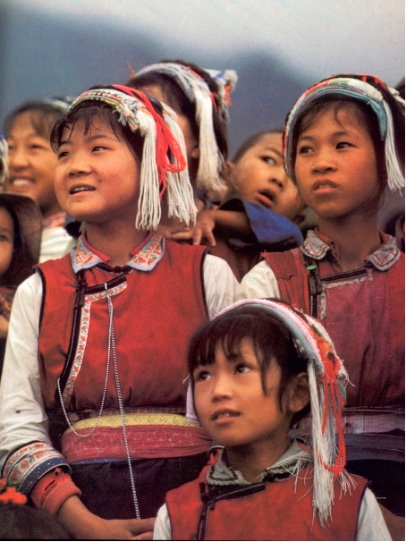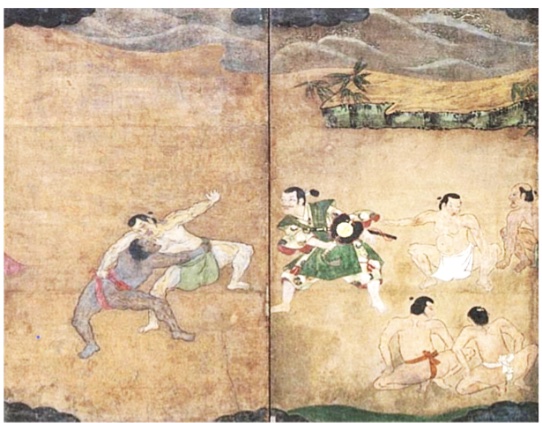Archive for Names
February 15, 2022 @ 9:43 pm· Filed by Victor Mair under Language and sports, Language play, Names
In "Fly High, Frog Princess! Well Done, Chen No. 3! The world’s most popular Olympians are household names. But to Chinese fans who delight in creating nicknames, they’re different characters entirely", Andrew Keh and John Liu (NYT, 2/15/22) highlight some of the affectionate monikers that have been applied to athletes at the Beijing Winter Olympics. Here I extract several of the favorites:
Chén Sān 陈三 ("Chen No. 3") = Nathan Chen (figure skater), three-time World champion, three-time Grand Prix Final champion.
[This nickname] requires some understanding of international figure skating history. In the eyes of Chinese skating fans, he is the third prominent skater from North America with the Chinese surname Chen, which, in English, can also be spelled Chin, Chan or Tan, depending on the original dialect. Before him came Tiffany Chin, who was the U.S. national champion in 1985, and Patrick Chan, the 2018 Olympic gold medalist from Canada.
Chen's Chinese name is Chén Wēi 陈巍; some fans call him “Tigger” (Tiàotiào hǔ 跳跳虎), using the Chinese translation for the Winnie the Pooh character.
Read the rest of this entry »
Permalink
February 13, 2022 @ 10:18 am· Filed by Victor Mair under Etymology, Language and food, Language and sports, Names
You'll be hearing a lot of that Cincinnati Bengals chant today.
What does it mean? How did it originate?
To understand the meaning, you have to put it in the context of the whole chant:
"Who dey, who dey, who dey think gonna beat dem Bengals?" Fans then roar: "Nobody!"
So it's a rhetorical question.
Read the rest of this entry »
Permalink
February 10, 2022 @ 10:21 am· Filed by Victor Mair under Language and science, Names, Pronunciation
AntC led me down a deep, dark rabbit hole by asking: "Hi Professor Mair, is the Contributing Writer confused, or is it the interwebs?"
He was prompted to ask that question by having read the following statement in this article, "Orion’s love affair, Shen Xiu’s long-distance friendship on Taiwan’s winter sky", Taiwan News, by P.K. Chen, Contributing Writer (2/8/22):
The Greek constellation Orion is called “Shen Xiu” (參宿, “The Three Stars”) in China; “Shen” or “three” refers to the three stars on Orion’s belt, while “Xiu” or “place for rest” refers to where the moon remains fixed and “rests.”
Trying to figure out the relationships among the names of the constellation and its constituent stars in Greco-Latin and Sinitic nomenclature ate up an entire evening. To start with, there are many possibilities for how to pronounce 參宿, the Chinese equivalent to Orion (constellation name): sānsù (Google Traslate), cānsù (zdic), shēnxiù (Wiktionary). So we've got a lot of variation involving both characters of the term. But that's just the beginning of our attempts to grapple with the language and lore concerning Sinoxenic words for Orion.
Read the rest of this entry »
Permalink
February 1, 2022 @ 8:29 am· Filed by Victor Mair under Language and fashion, Language and politics, Names, Pronunciation, Topolects
Under the rubric, "An Odd Question", Doug Adams (the Tocharianist) asked:
Why do we always refer to Sun Yat-sen (1866-1925) and Chiang Kai-shek (1887-1975) in Cantonese (?) phonological form rather than Mandarin?
Simple reply
Before about 1975, Cantonese was by far the most widespread and prevalent Sinitic language around the world outside of China, and Sun's Cantonese art name, Yat-sen, was so deeply ingrained and familiar in English for decades — both in speech and in writing — that it would have been very difficult to change it to Mandarin Yìxiān 逸仙 ("Liberated Transcendent"). Anyway, he had many other different names for different purposes, and some of them were as popular as Yat-sen, e.g., Chung-shan / Zhongshan, which actually derives from a Japanese pseudonym / nom de guerre (Nakayama Kikori [see below]) given to him by a Japanese friend. Chung-shan / Zhongshan 中山 was / is so widespread in China that his hometown was renamed after it, making Zhongshan one of the few cities in China to be named after a person. Zhongshan is also used as the name of the style of jacket that Sun Yat-sen liked to wear: Zhongshan suit (simplified Chinese: 中山装; traditional Chinese: 中山裝; pinyin: Zhōngshān zhuāng), but in the PRC it came to be known as the Mao suit. (I'm the proud owner of a Zhongshan suit, which I had tailor made in Taipei in 1971.) There are dozens of other things and places called Zhongshan in China, a few of them referring to states from much earlier times that are completely unrelated to Sun Yat-sen / Zhongshan, for which see here.
Read the rest of this entry »
Permalink
January 18, 2022 @ 5:33 pm· Filed by Victor Mair under Etymology, Language and animals, Language and archeology, Language and culture, Language and ethnicity, Language and food, Names
The province of Yunnan in the far south is home to more ethnic minorities and languages than any other part of China (25 out of 56 recognized groups, 38% of the population). The Bai are one of the more unusual groups among them.

Bai children—in Yunnan, China
Read the rest of this entry »
Permalink
December 13, 2021 @ 11:30 pm· Filed by Victor Mair under Language and literature, Names, Phonetics and phonology
[The first part of this post is from S. Robert Ramsey.]
Ceremony for the unveiling of a bust of the poet on May 18, 2011 in downtown Seoul:

Read the rest of this entry »
Permalink
December 6, 2021 @ 9:01 pm· Filed by Victor Mair under Names, Topolects
The following article is a lucid and linguistically sound discussion concerning the nomenclature for the main non-Mandarin language of Taiwan:
"The Problem of Naming the Most Popular Non-Mandarin Language Used in Taiwan," 6 December 2021", by Hung-yi Chien.
Considering the balanced and fair presentation of the article overall, one wonders why it scrupulously avoids one of the most common ways of referring to the language in question, namely, "Hoklo". For some reasons why people might wish to refrain from referring to the language in question as "Hoklo", see the very extensive presentation here.
Read the rest of this entry »
Permalink
December 2, 2021 @ 1:06 am· Filed by Victor Mair under Bilingualism, Language and advertising, Language and food, Multilingualism, Names
From Mark Swofford:
The back of a restaurant stand going up in front of the Banqiao train station as part of a temporary market for the Christmas season.

Read the rest of this entry »
Permalink
November 29, 2021 @ 2:16 pm· Filed by Victor Mair under Language and art, Language and literature, Names
Responding to the English translation of the Chinese epitaph on "Matteo Ricci's tombstone" (11/24/21), rit malors remarks:
It's the first time I encounter the word "sobriquet" for hào 號. Later I browse the Wikipedia and find that there is an entry for hào 號 as "Art Name" (in China, Japan, Korea, and Vietnam).
In it, "sobriquet" is not mentioned at all. I think "art name, pseudonym, or pen name" cannot really grasp the nature of hào 號. Do you think that you have to make a post about it as what you did in "
Unmatched by no other philosopher" (11/6/21)?
Read the rest of this entry »
Permalink
November 28, 2021 @ 12:55 pm· Filed by Victor Mair under Alphabets, Language and medicine, Language and politics, Names
"WHO — You cannot be Xi-rious! The WHO’s decision to skip the Greek letter Xi in its ludicrous naming system shows exactly who controls it", by David Spencer, Taiwan News, Contributing Writer, 2021/11/28:

(source)
Read the rest of this entry »
Permalink
October 5, 2021 @ 3:28 pm· Filed by Victor Mair under Etymology, Historical linguistics, Names, Phonetics and phonology
Yesterday, while doing research for a paper on medieval Dunhuang popular narratives (biànwén 變文 ["transformation texts"]), I did a Google search for the Peking Library, where some of the bianwen manuscripts are kept. Instead of the national library of China in Peking / Beijing in the PRC, I was led to the Pekin Public Library in Illinois. That prompted me to ponder the fact that this Illinois city followed the French pronunciation, Pékin, of the Chinese capital when it took its name, rather than the English Peking.
Following the official Hanyu Pinyin Romanization of the PRC, English now transcribes 北京 ("Northern Capital") as Beijing (Běijīng [pèi.tɕíŋ]). But until recently this was not always the case for English, much less for dozens of other languages around the world. Thirty-one years ago, in "Backhill / Peking / Beijing" (see "Selected readings" below), Bosat Man wrote (p. 6):
Read the rest of this entry »
Permalink
September 13, 2021 @ 8:33 am· Filed by Victor Mair under Language and entertainment, Language and geography, Language and history, Names
According to this website of stars with the surname Chu 楚, Sara Chu was born in Japan, China:
Chǔ Jǐn (Sara Chu), shēngrì: 1974 nián 10 yuè 29 rì (xīngqí'èr), chūshēng dì: Zhōngguó Rìběn, xīngzuò: Tiānxiēzuò
楚谨(Sara Chu),生日:1974年10月29日(星期二),出生地: 中国日本,星座:天蝎座
Chu Jin (Sara Chu), birthday: October 29, 1974 (Tuesday), place of birth: Japan, China, constellation: Scorpio
I've never heard of Sara Chu, and I've never heard of a place in China called "Japan", but it's possible that I missed both of them.
Read the rest of this entry »
Permalink
September 3, 2021 @ 12:13 am· Filed by Victor Mair under Language and art, Language and ethnicity, Language and history, Language and sports, Names
[The first part of this post, giving the historical background of the central figure, is by S. Robert Ramsey.]

Two joined panels of a Japanese folding screen painted in 1605
Read the rest of this entry »
Permalink




